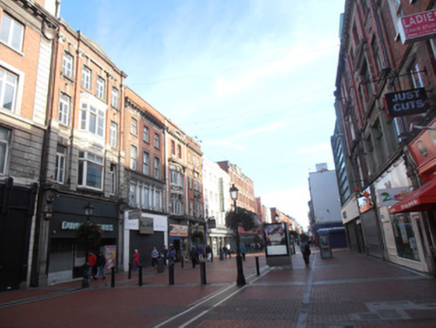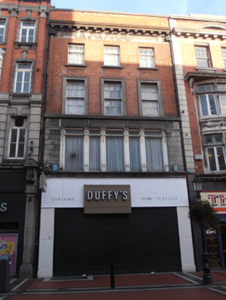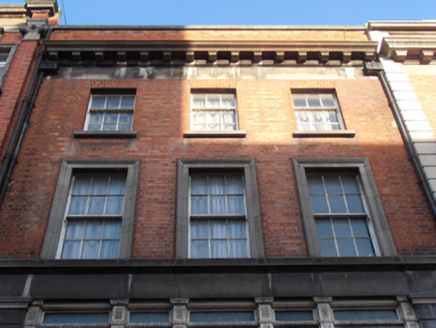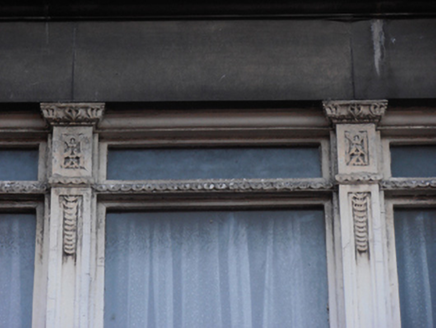Survey Data
Reg No
50010250
Rating
Regional
Categories of Special Interest
Architectural, Artistic
Original Use
Shop/retail outlet
In Use As
Shop/retail outlet
Date
1915 - 1920
Coordinates
315953, 234700
Date Recorded
30/10/2011
Date Updated
--/--/--
Description
Terraced three-bay four-storey commercial premises, dated 1918, designed by George Sheridan. Double-pile hipped slate roof behind parapet with limestone coping, red brick chimneystack, cast-iron hopper and downpipes. Hopper dated 1918. Red brick walling laid down in English Bond with moulded stone modillion cornice and frieze, first floor entirely in channelled rusticated limestone. Square-headed window openings having gauged voussoirs to third floor having limestone sills and three-over-six pane timber sliding sash windows. Square-headed window openings to second floor within moulded stone surrounds, sharing continuous reeded limestone sill course with rosettes, having six-over-six pane timber sliding sash windows. Arcade of square-headed window openings to first floor level having decorative moulded timber mullions having fixed timber-framed windows with fixed single-pane overlights. Recent timber shopfront to ground floor having moulded limestone cornice forming continuous sill to first floor window openings. Square-headed central door opening with recent automatic sliding doors opening onto tiled recessed porch.
Appraisal
Named after the Earl of Drogheda, Viscount Henry Moore, North Earl Street was badly damaged in the fighting of the Easter Rising in 1916. Much of the street was rebuilt between 1917 and 1919 as retail premises in a classical style. Number 27 has much attractive detailing at its front elevation. A high level of craftsmanship is demonstrated in the stonework which provides an attractive contrast to the red brick and is testament to skillful design of the architect, George Sheridan. The highly detailed first floor window is an attractive feature and the heavy modillion cornice contributes to the variety of the streetscape.







